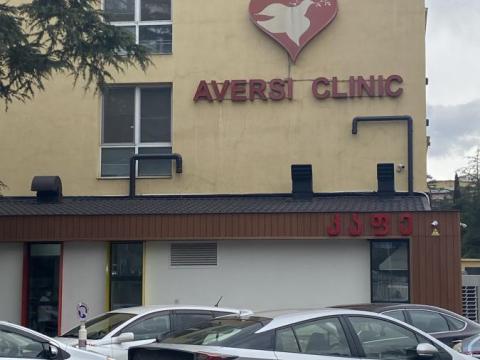Introducing Tbilisi
Tbilisi, also spelled Tiflis, is the capital city of Georgia, located on the banks of the Mtkvari River. The metropolitan area is 726 km2 (280 mi2) in size and has a population of approximately 1.2 million people (2019).
The Tbilisi agglomeration includes many villages on the city's outskirts. Administratively, the city is divided into raions (districts), each with its own central and local government units with jurisdiction over a limited range of affairs.
This subdivision was established under Soviet rule in the 1930s, following the general subdivision of the Soviet Union. Since Georgia regained independence, the raion system was modified and reshuffled. According to the latest revision, Tbilisi raions include:
- Mtatsminda District (neighbourhoods: Mtatsminda, Sololaki, Vera, Kiketi, Kojori, Shindisi, Tsavkikisi, Tabakhmela)
- Vake District (neighbourhoods: Vake, Bagebi, Vazha Pshavela Quarters, Nutsubidze Plateau, Tskneti)
- Saburtalo District (neighbourhoods: Delisi, Vedzisi, Vashlijvari, Bakhtrioni, Khiliani, Didi Dighomi, Zurgovana)
- Krtsanisi District (neighbourhoods: Kala, Ortachala, Ponichala)
- Isani District (neighbourhoods: Avlabari, Navtlughi, Metromsheni, Vazisubani, Eighth Legioni)
- Samgori District (neighbourhoods: Varketili, Third Array, Orkhevi, Dampalo, Lilo, Lower Samgori)
- Chughureti District (neighbourhoods: Chughureti, Kukia, Svanetisubani)
- Didube District (neighbourhoods: Didube, Didghomi Massive)
- Nadzaladevi District (neighbourhoods: Nadzaladevi, Sanzona, Temka, Lotkini, Old Nadzaladevi)
- Gldani District (neighbourhoods: Gldani Massive, Avchala, Mukhiani, Gldanula)
Tbilisi is located in the heart of eastern Georgia, near the Trialeti mountain range. According to Georgian legend, it was founded in the 5th century by King Vakhtang Gorgasali, who while hunting shot a pheasant that fell into a warm spring and was either boiled or healed. In any case, the king was inspired to establish a city on the site, and the city's name is derived from the Georgian word tbili, which means "warm." Despite the fact that the city has been destroyed and rebuilt 29 times, the layout of the Old Town is mostly intact, with narrow alleys and large crooked houses built around courtyards.
Climate
Winters in Tbilisi are relatively cold, and summers are hot. Tbilisi has a relatively mild micro-climate compared to other cities that have a similar continental climate along the same latitudes due to its proximity to large bodies of water (Black and Caspian Seas) and the fact that the Greater Caucasus Mountain Range (further to the north) blocks the intrusion of cold air masses from Russia. Tbilisi's average annual temperature is 12.7 °C (54.9 °F). The coldest month is January, with an average temperature of 0.9 °C (33.6 °F). The hottest month is July, with an average temperature of 24.4 °C (75.9 °F). The absolute minimum temperature recorded is 24 °C (11 °F), and the absolute maximum temperature is 40 °C (104 °F). The annual precipitation average is 568 mm (22.4 in). May and June have the most precipitation (averaging 84 mm (3.3 in) each), while January has the least (averaging 20 mm (0.8 in)). Snow falls 15–25 days per year on average. The surrounding mountains frequently trap clouds within and around the city, particularly during the spring and autumn months, resulting in extended rainy and/or cloudy weather. Throughout the year, northwesterly winds dominate most of Tbilisi. Southeasterly winds are also common.
Last modified on 10/25/2021 - 12:32
Places 0
Currently there are no places in Tbilisi.
Articles 0
Currently there are no articles about Tbilisi.
Trip reports 3
Videos
Currently there are no videos of Tbilisi.









